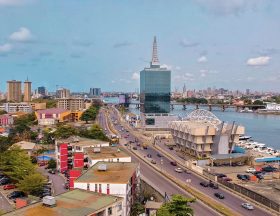The Nigerian government is stepping up initiatives to provide widespread access to telecoms services in the country. The executive is working with the private sector and international partners to roll out 95,000 km of fibre optic cable across the country.
The Nigerian Communications Commission (NCC) aims to reduce the number of unconnected Nigerians in rural areas to 20% by 2027, compared with 61% at present. This was revealed by Aminu Maida, executive vice-president of the regulator, at the 6th edition of the Policy Implementation Assistance Forum held in Lagos on 10 July.
‘We will create an enabling environment for innovation, ensure sound infrastructure, unlock investment in critical sectors and stimulate economic growth,’ said Aminu Maida.
This initiative is part of the actions undertaken by the Nigerian government to provide widespread access to telecommunications services. For example, it plans to deploy 95,000 km of fibre optic cable to cover the entire country, in partnership with the World Bank and the European Union. The executive is also exploring satellite solutions to cover the entire country, through the national operator (NIGCOMSAT) or private operators (Starlink, etc.).
Nigeria had 219.3 million mobile subscribers and 163.8 million Internet subscribers on 31 March, according to official statistics. However, the actual figures are likely to be lower, given that some Nigerians have several SIM cards, each of which is counted as a subscriber. In 2022, the Nigerian Communications Commission (NCC) revealed that nearly 35 million Nigerians had no access to telecoms services.
































Réagissez à cet article